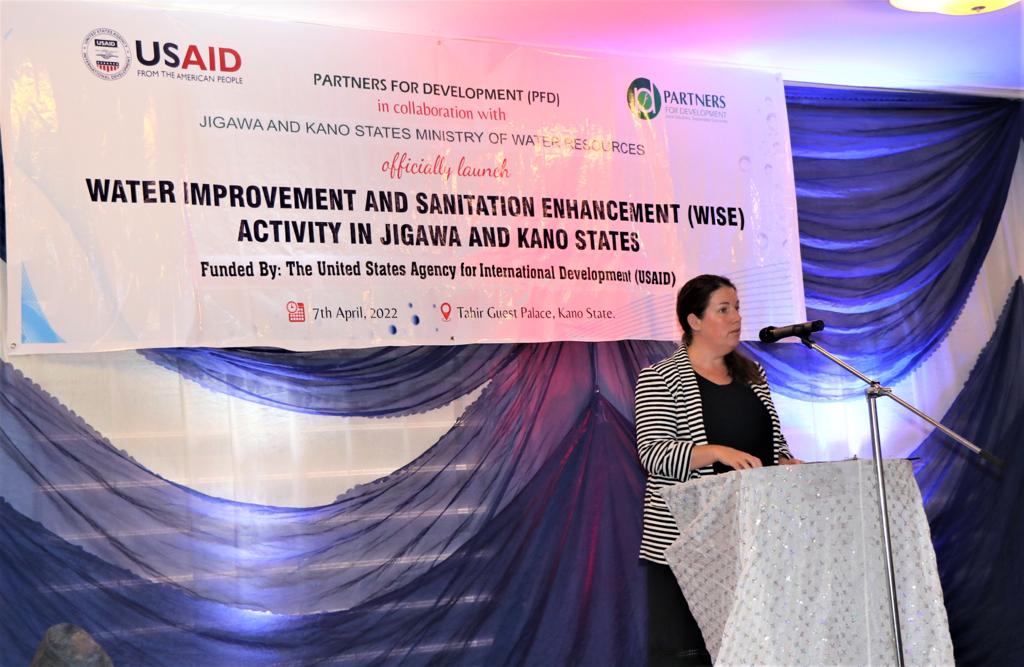The United States Agency for International
Development (USAID) has through Partners for Development launched a three-year $3.5
million Water Improvement and Sanitation Enhancement (WISE) activity to improve water safety in Jigawa and Kano states.
According to a statement from USAID on Thursday, the WISE activity will reduce the occurrence and impact of waterborne diseases through improvements in access to clean drinking water and sanitation, and the adoption of key hygiene behaviors.
The statement said one of the first tasks will be to construct or rehabilitate 30 water access points and install 55 sanitation facilities in schools and community health centres, it is expected that these improved water access points will provide clean drinking water to more than 66,000 local residents.
In her remarks, USAID Deputy Mission Director Katie Donohoe said, “Access to basic water, sanitation, and hygiene services within a community are the cornerstone of a healthy, equitable, and prosperous Nigeria.” She added: “When this is done, each community will have a first line defense against the spread of infectious disease and allow children to spend more time in school.”
The Deputy Governor of Jigawa State Umar Namadi said, “Water is life, and it has been one of the priorities of the Jigawa State government.”
He added, “We are ready to cooperate with the USAID WISE activity to ensure that safe drinking water is provided to the people of the state.”
According to the 2019 Water, Sanitation, and Hygiene National Outcome Routine Mapping report, two out of five schools in Jigawa State, and three out of four in Kano State do not have access to reliable drinking water. Frontline healthcare workers also lack access to safe water and struggle to deliver high quality health services.
The survey found that over half of community water access services in Jigawa broke down within their first year of operation, while over 20 percent in Kano no longer functioned after six months.
The WISE activity will work toward addressing some of these deficiencies and increase the capacity of local stakeholders to sustain and manage equitable access to water and sanitation.


